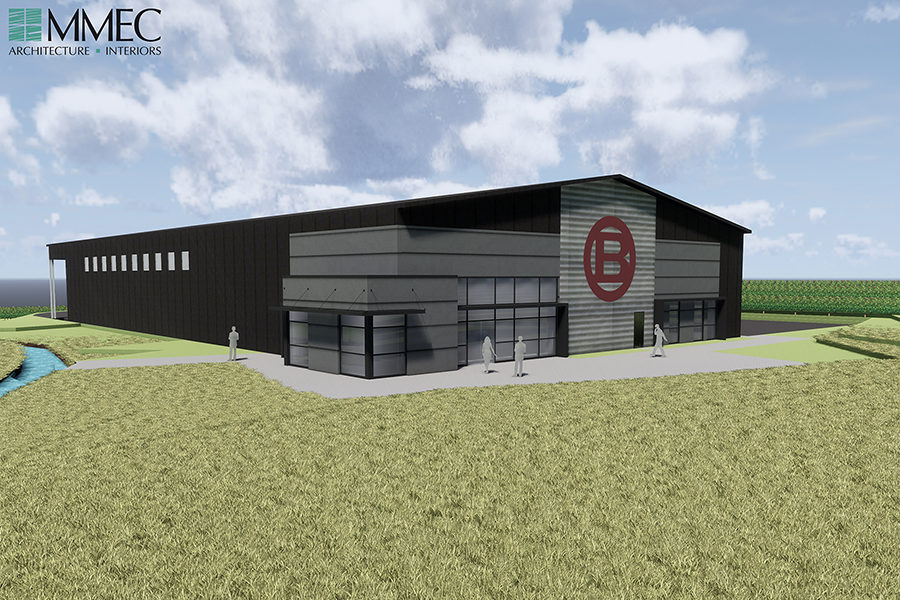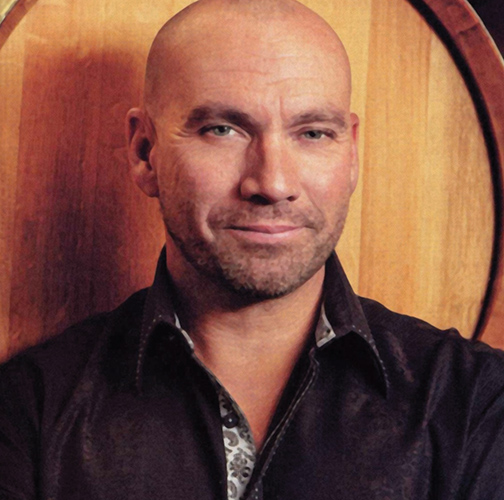
Home » Richland winery restarts expansion delayed by Covid-19
Richland winery restarts expansion delayed by Covid-19

July 22, 2020
Bookwalter Winery in Richland will begin its pandemic-delayed expansion this summer.
The family-owned winery and restaurant secured permits for the $4 million project in late June. It initially intended to break ground in February but “hit the brakes” when the Covid-19 crisis took hold earlier this year.

John Bookwalter leads the winery his father, Jerry, began in 1982. He said he restarted the expansion in June for practical reasons. New building codes that took effect on July 1 would have forced costly revisions to the building design from MMEC Architecture & Interiors.
The addition will consolidate wine production and storage at J. Bookwalter’s 10-acre Richland campus while adding room for offices and a tasting room. The new addition will occupy a former vineyard across a small lawn beside the existing 8,000-square-foot building.
Bookwalter removed the two acres of grapevines this spring. The vineyard provided a charming backdrop to the J. Bookwalter property, but was not a major source of wine grapes.
Bookwalter planned the expansion for nearly 10 years with the dream of bringing production and storage back from remote sites. The original construction timeline would have put the new production facilities online in time for the 2020 harvest.
Now, it expects to open next spring. The 2020 vintage will be produced as it has been for years, at Mercer Estates and Goose Ridge. It also stores case goods, or wine bottles, in Kennewick and Richland.
Bookwalter said work will begin as soon as the contractor, Chervenell Construction, can get started.
“We need the space,” he said.
Four months into the Covid-19 pandemic, the winery and restaurant has rebalanced its operations. While it’s not necessarily profitable, it is generating cash flow, Bookwalter said.
He said the pandemic forced it to refine processes and adapt to a dining world that was changing even before March 15, when Washington’s Stay Home, Stay Healthy order compelled it to close its restaurant, Fiction @ J. Bookwalter.
Take-out and delivery already were emerging models for Fiction. It had a full menu available by March 16 and built relationships with delivery apps such as Door Dash within weeks.
It also is exploring joining TCFoodDudes.com, the local restaurant delivery business launched by the West Richland-based owners of The Chicken Shack
“Pickup is here to stay. It needs to be part of every restaurant's program,” he said. “Food has done well but I can only do so much.”
On a good day, food sales are about half their pre-pandemic levels. Some days it’s more like 10%.
Its wine business has shifted as well.
Its already strong to-go wine sales rose after the stay-home order struck, increasing more than 100 percent. That doesn’t fully compensate for widespread restaurant closures, a mainstay of its wholesale business.
Its national sales disappeared although local ones have continued. The effect has been like a seesaw, he said.
“We’ve fared OK,” he said. “I’m convinced we will be stronger at the end.”
J. Bookwalter is one of thousands of Tri-City businesses, including wineries, that received a forgivable loan through the Paycheck Protection Program of the Coronavirus Aid Relief and Economic Security (CARES)
It received $350,000, according to figures released in July by the U.S. Small Business Administration, which guaranteed loans issued through traditional lenders.
The money helped to keep the business and its employees intact as it worked to revise its business.
Life returned to something akin to normal the week of July 4, when Benton County together with Franklin County entered a modified version of Phase 1 of Washington’s Safe Start program.
Fiction @ J. Bookwalter began serving diners on its outside patio and lawn, with restrictions on capacity and a six-foot distance between dining areas.
Surplus tables and chairs are stashed in a pole barn. It brought in a mobile toilet station to serve guests who don’t want to go inside to use the lavatory.
For Bookwalter, making guests comfortable is the goal.
He said business under the modified Phase 1 was strong after the first week. Diners, eager for a reprieve from the stay-home orders, came back.
The average guest’s check is up and while most are local, J. Bookwalter has seen a return of Seattle customers. It steers overnight guests to The Lodge, Richland’s wine-oriented hotel at Columbia Point.
The average bill, or ticket, has been robust.
“They aren’t going inexpensive.”
The existing building will be recast as a restaurant-only facility with a basement kitchen in a future phase of the expansion.
Real Estate & Construction Local News
KEYWORDS august 2020





